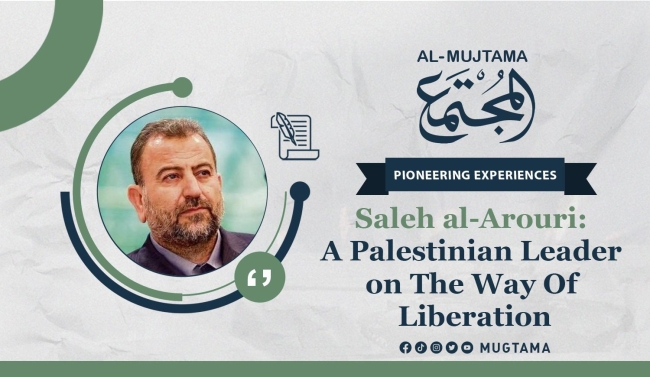Introduction:
Saleh al-Arouri, a prominent Palestinian political and military leader, played a significant role in shaping the trajectory of the Palestinian resistance movement, particularly within the framework of Hamas. Born in 1966 in the village of Aroura, al-Arouri's life was marked by his deep involvement in Islamic activism and his leadership in the establishment of the Qassam Brigades in the West Bank. This essay explores Saleh al-Arouri's life, and contributions, ultimately culminating in his assassination in Beirut.
Early Life and Education:
Al-Arouri's early life in the Palestinian territories laid the foundation for his later involvement in the resistance movement. He received his education in Palestine, culminating in a bachelor's degree in Islamic law from the University of Hebron. From an early age, he engaged in Islamic activities, demonstrating a commitment to his religious and cultural roots.
Founding the Qassam Brigades:
Al-Arouri's pivotal role in founding the Qassam Brigades, the military wing of Hamas, in the West Bank showcased his dedication to the Palestinian cause. Accused by Israel of orchestrating the kidnapping of three settlers in Hebron in 2014, his house became a target for demolition, reflecting the intensity of the conflict and the personal risks he faced.
Arrest and Deportation:
The Israeli authorities detained al-Arouri for approximately 15 years on charges related to the formation of Qassam Brigades cells in the West Bank. His experiences in Israeli prisons became a testament to the challenges faced by Palestinian leaders in their pursuit of liberation. Despite deportation from Palestine, al-Arouri continued to be an influential figure in the Palestinian diaspora.
Political Leadership:
Al-Arouri's political ascent within Hamas, culminating in his election as deputy head of the political bureau in 2017, underscored his enduring influence. His involvement in the negotiation team for the Shalit deal, a significant prisoner exchange agreement, demonstrated his commitment to securing the release of Palestinian detainees.
House Demolition:
The demolition of al-Arouri's house in response to the alleged kidnapping incident in 2014 highlighted the retaliatory measures employed by Israeli forces against Palestinian leaders. These events added to the complex narrative surrounding al-Arouri and intensified the animosity between Hamas and Israel.
Assassination:
The tragic end to al-Arouri's life occurred in Beirut, where an Israeli airstrike targeted a Hamas office. His assassination, alongside other Qassam Brigades leaders, amplified regional tensions and raised questions about the methods employed in the Israeli-Palestinian conflict.
Conclusion:
Saleh al-Arouri's life and legacy are emblematic of the challenges faced by Palestinian leaders in their struggle for liberation. His role in founding the Qassam Brigades and his subsequent political endeavors left an indelible mark on the Palestinian resistance movement. The controversies surrounding his actions and the circumstances of his assassination reflect the complex nature of the Israeli-Palestinian conflict, emphasizing the need for a comprehensive and just resolution to ensure lasting peace in the region.


